Legends Of Northern Japan - A Winter Trip To Sendai, Iwate, And Aomori

Tohoku, the northern part of Japan's main island, has a special charm in winter. It is also famous for the historical and literary figures who were born here - Date Masamune, Osamu Dazai or Kenji Miyazawa. You can also enjoy its enchanting folk tales.
A Trip through the History of Tohoku
The Tohoku Region, located in the northern part of Honshu, Japan's main island, has a very particular history, and a culture and legends of its own.
In winter, Tohoku changes into a sparkling white silver world. We invite you on a cultural trip to Sendai in Miyagi, to the city of Tono in Iwate, and to the Tsugaru Peninsula in Aomori, places where you can feel the true spirit of Tohoku.
History: Sendai - the City of Date Masamune, Tohoku's Famous Lord
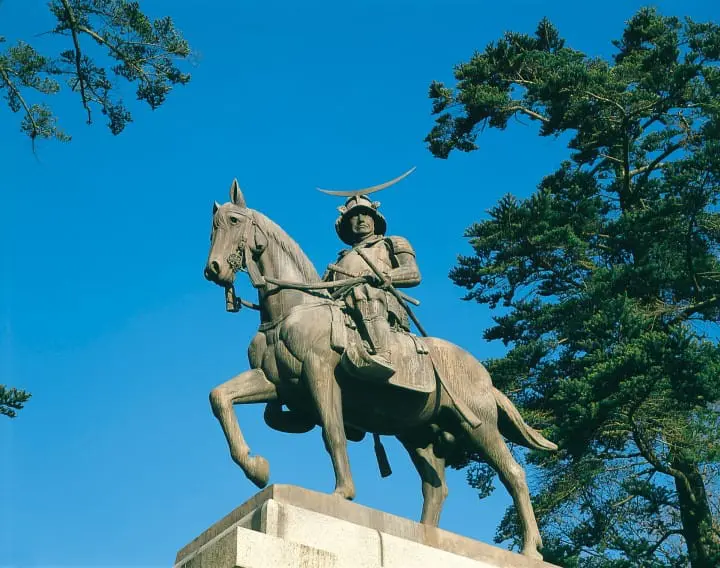
Picture courtesy of Miyagi Prefectural Tourism Division
One of the prominent figures in the history of Tohoku is Date Masamune (1567 - 1636), also known as the "one-eyed dragon lord" (*1) of the Warring States period. Traces of his legacy can be found in Sendai, the largest city in the Tohoku Region.
*1 One-eyed dragon... a hero who lost one of his eyes.
The Date Bushotai Corps × Regular Tour Bus Sendai Osanpogo
If you want to learn more about the hero Date Masamune, ask the Date Bushotai Corps, a group that welcomes the visitors to Sendai!
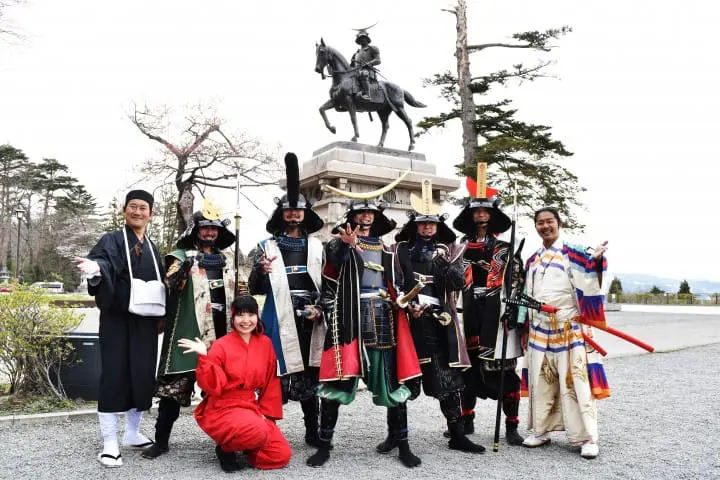
Picture courtesy of Date Bushotai
Date Bushotai is a group involved in promoting Sendai as a travel destination. The group members, led by "lord Date Masamune", offer information on the culture of Miyagi Prefecture.
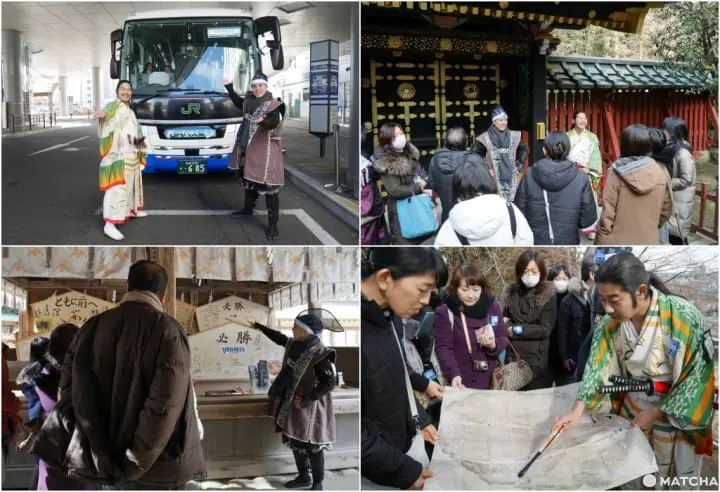
Sendai has a sightseeing bus called Sendai Osanpogo, operated by JR Bus Tohoku. Until the end of March 2019, the Date Bushotai members may hop on this bus and tour the famous places of Sendai together with the passengers. You might actually see "Lord Date Masamune" himself telling stories about locations in the city that are related to the Warring States period hero, Date Masamune.

We recommend you reserve your seat in advance for the Sendai Osanpogo Bus. Reservations can be made online HERE.
In order to check when the Date Bushotai members will be riding the tour bus or details on events featuring them, please refer to their official website.
Matsushima
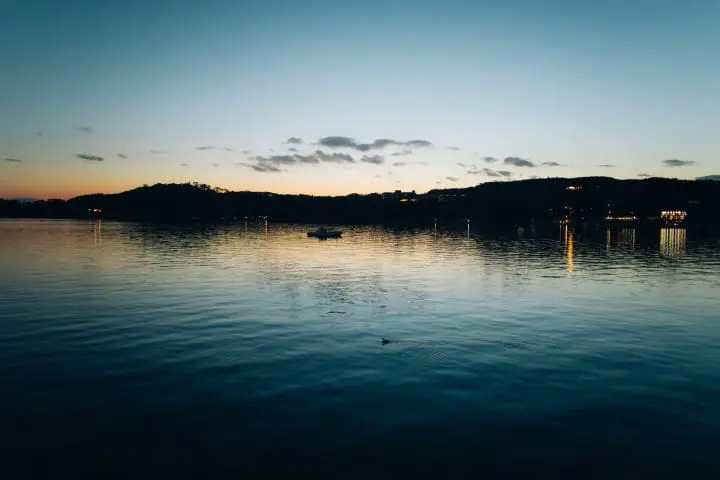
photo by FUKA KAMATA
Matsushima is one of the most beautiful places in Japan, designated for having one of the country's best three scenic views. Ever since Date Masamune ruled his province (*2) here, Matsushima has been loved by the people as a place for moon viewing parties. Nowadays, it is a popular travel destination where visitors can enjoy leisure cruises around the islands, as well as tasting the delicious local oysters.
In winter at dusk, when the sky is clear, the sunset is beautifully reflected in the waters of Matsushima. How about watching the sunset from Kanrantei, which is located on the cape, while enjoying Japanese sweets and a bowl of tea?
*2 Province... An administrative unit during the Edo period.
SENDAI Pageant of Starlight
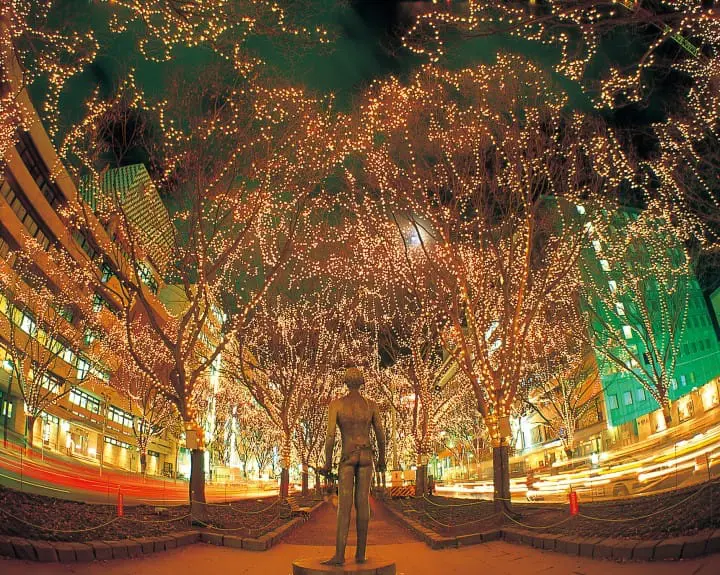
Picture courtesy of Miyagi Prefectural Tourism Division
The SENDAI Pageant of Starlight is an illumination event held in Sendai from mid-December to the end of the month. 600,000 lights decorate the avenue on a stretch longer than one kilometer, creating a street of light. The winter cold becomes so much easy to endure thanks to the warmth of these lights.
The beautiful pageant of light is sure to impress even Date Masamune, the lord of Tohoku.
Legends: Tono City in Iwate - The Home of the Kappas
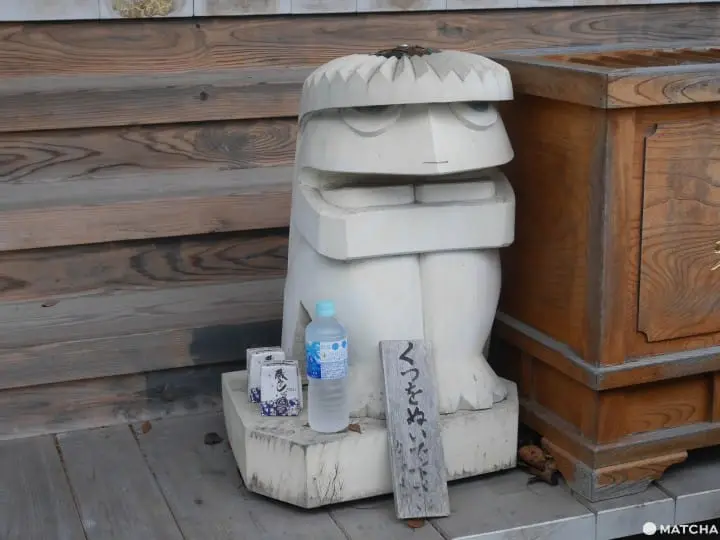
"The Legends of Tono", compiled in the Meiji period, features stories about fantastical creatures such as kappas and zashiki-warashi that were originally folk tales from Tono, nowadays a city in Iwate Prefecture.
Tono is a place that preserved not only old legends but also traditional Japanese houses and local culture. This is why Tono is a city with a peculiar atmosphere, reminding one of the times gone by.
Denshoen - The Park of Tradition
"The Legends of Tono" were compiled by the Japanese writer Yanagita Kunio based on the tales of Sasaki Kizen, a folklore researcher. Denshoen Park is home to the Sasaki Kizen Memorial Museum. Visitors can listen to tales and legends here, or try their hand at local crafts.
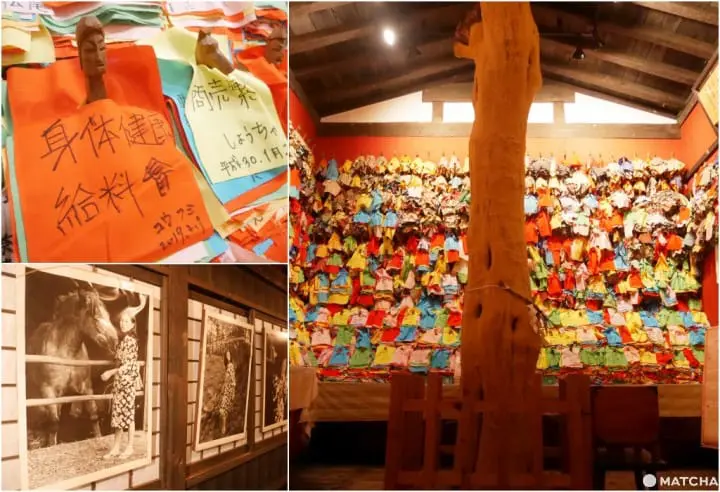
The Oshirado Hall in Denshoen Park enshrines one thousand "Oshira-sama". Oshira-sama is the deity of announcements ("oshirase" in Japanese) but also of silkworms, agriculture, and horses. It appears in a story from "The Legends of Tono".
Long, long ago, the daughter of a farmer fell in love with the horse her family was raising. When her father found out, he killed the horse, but his daughter joined the horse in its ascent to the sky. It is said that they became the deity called Oshira-sama.
If you look close, you'll notice that Oshira-sama consists of a pair of heads, that of the girl and that of the horse. It is believed that, if you write a wish on a piece of cloth and offer it to Oshira-sama, your wish will be granted.
The Kappa Abyss
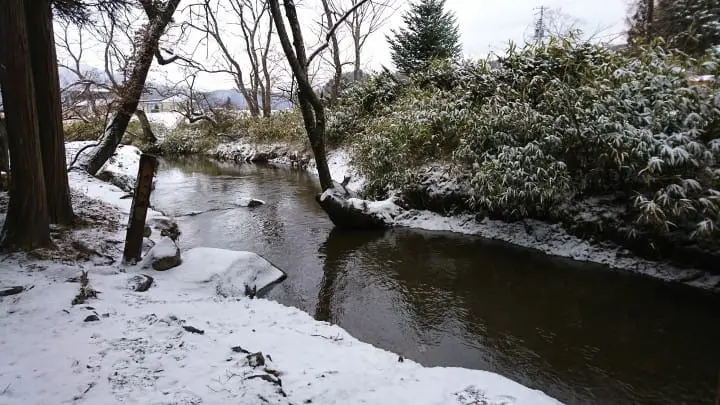
Picture courtesy of Denshoen Park
The Kappa Abyss is located at about 5 minutes on foot from Denshoen Park. It is said that this place is the home of kappas, fantastical water creatures that are half-human, half-amphibian. Apparently, you can fish kappas here using cucumbers, their favorite treat.
There is an old man in the area who is so famous for how many kappas he caught that he was nicknamed "Kappa-ojisan" (old man kappa). If you meet him, ask him how he managed to catch all those kappas.
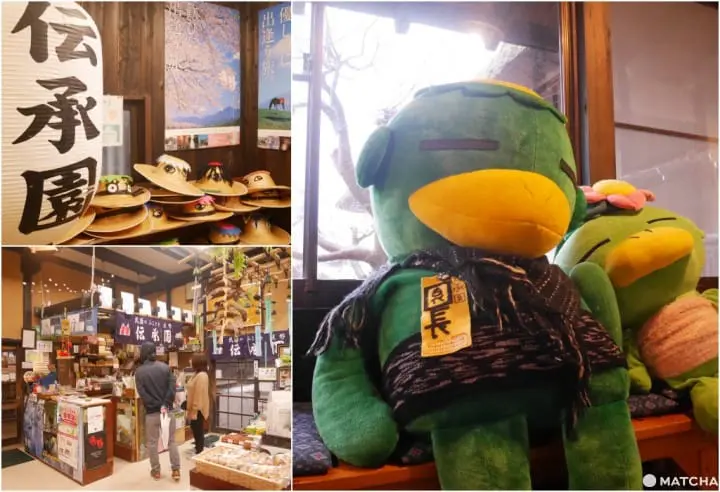
By the way, the manager of Denshoen is the Kappa Park Manager, a cute plush doll. How about wearing a kappa hat and taking a picture with the manager?
At Denshoen, you can find various types of cute souvenirs besides stuffed toys. They're great both for personal use and as gifts for friends.
Tono Furusato Village
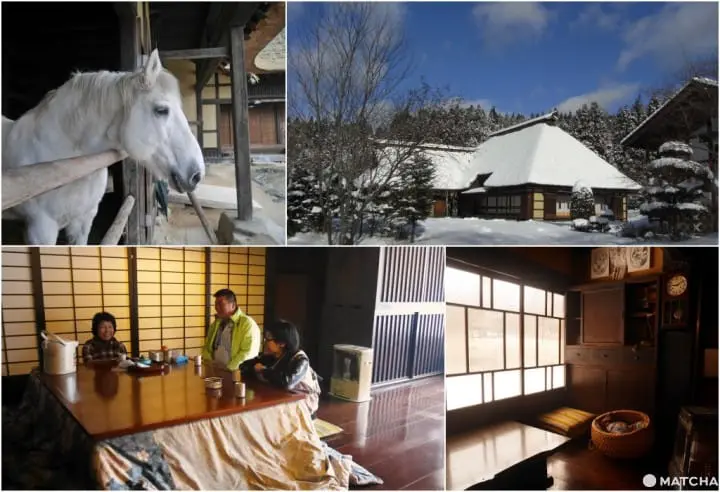
Upper right: Picture courtesy of Tono Furusato Village
Tono Furusato Village is one of the locations that were used for filming the popular 2016 TV series "Sanadamaru". It is a place that preserves several magariya, farmhouses with a particular architectural style that allowed the raising of horses.
In this village, visitors can enjoy activities outside in the snow or warming up under a kotatsu while sipping hot tea made by the volunteers working here. It is a place where one can feel the history of this region.
Tono Monogatari Museum
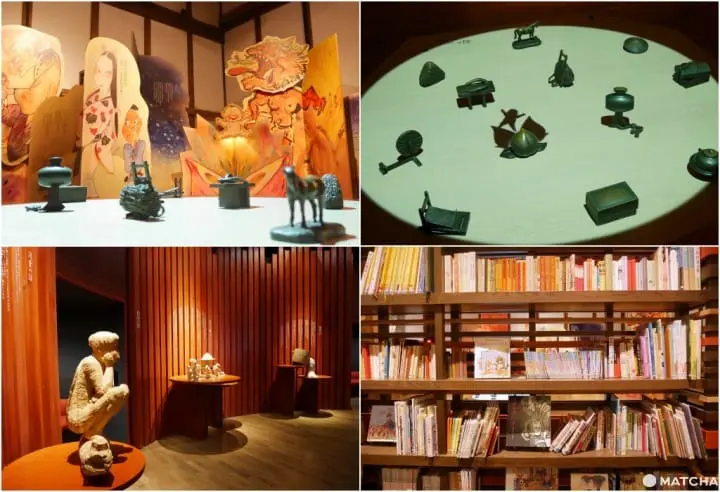
If you wish the learn more about "The Legends of Tono", then visit the Tono Monogatari Museum. The exhibits explain the content of these local legends using audio guides, videos, and miniature models, so everyone will be able to enjoy their visit, whether they speak Japanese or not.
Hanamaki Onsenkyo
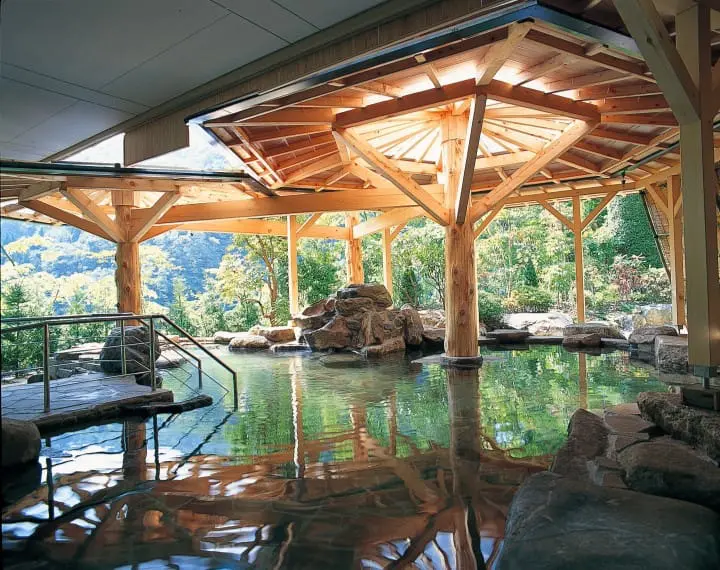
Picture courtesy of Hanamaki Tourism Association
Hanamaki Onsenkyo is a hot spring village located close to the city of Tono. It is one one of the largest onsen towns in Tohoku, with ten hot spring resorts located here.
The Miyazawa Kenji Children's Story Village (Miyazawa Kenji Dowa Mura) is also located close by. Miyazawa Kenji (1896 - 1933), a famous Japanese writer of stories for children, was born in Hanamaki City. The Miyazawa Kenji Children's Story Village was inspired by the author's stories and is a charming place to visit.
Literature: Tsugaru in Aomori - The Hometown of Osamu Dazai
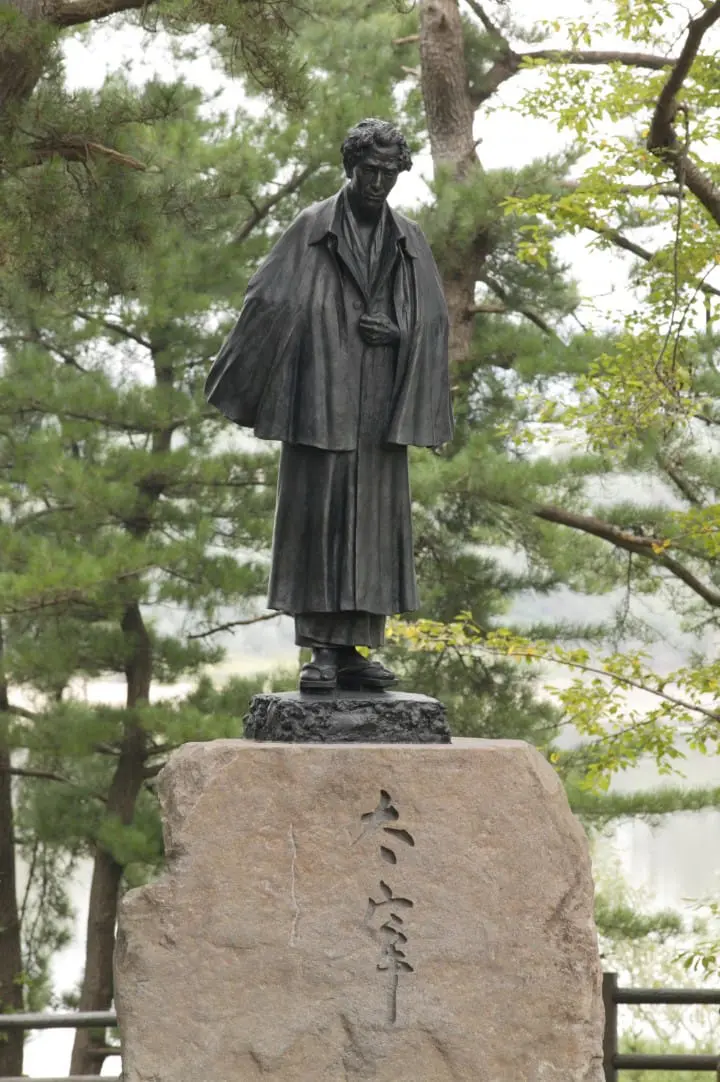
Picture courtesy of Aomori Prefecture and the Association for Aomori Tourism
The Tsugaru Peninsula in Aomori is the place where the prominent novelist Osamu Dazai was born. "No Longer Human" or "The Setting Sun" are two of his best-known novels, even popular with readers nowadays.
One of his works that received high acclaim is titled "Tsugaru". This book is full of warmth and light. You can feel the love he had for his hometown while reading this book.
The Stove Train of the Tsugaru Railways
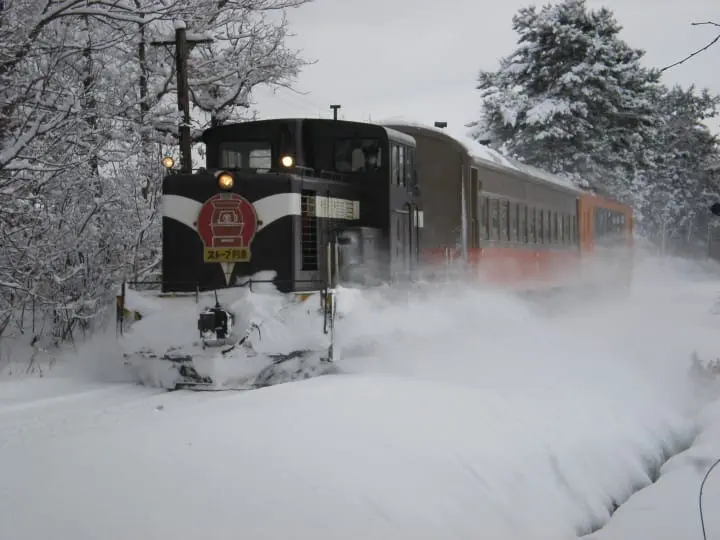
Picture courtesy of Tsugaru Railways
If you're visiting the places related to Osamu Dazai in Tsugaru, you shouldn't miss the Tsugaru Railways. It is the private railway that operates in the northernmost point of Honshu Island. At the time of its founding, the chief of the railway company was none other than Dazai's older brother, apparently. This railway passes through Kanagi (Kanagi Station), the town where Dazai's old home is located.
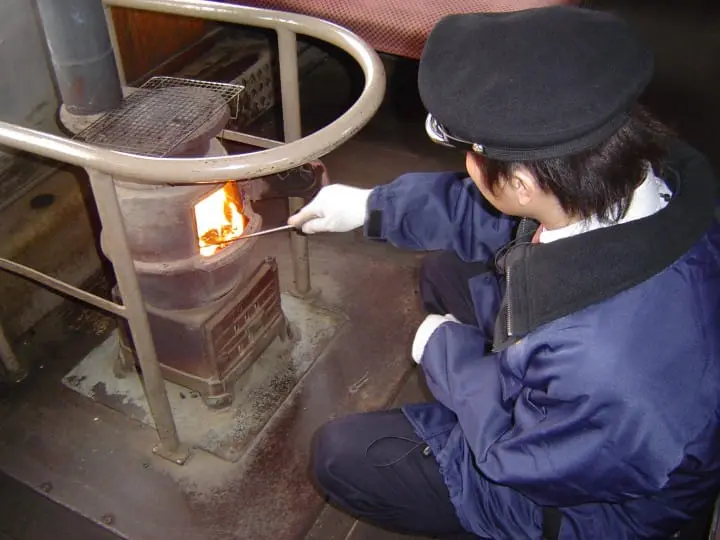
Picture courtesy of Tsugaru Railways
In winter, the Tsugaru Railways operate the Stove Train. It is an old model train that uses stoves to warm up the cars, just like they used to have in the olden days. The stoves use coals and keep the cars warm and cozy.
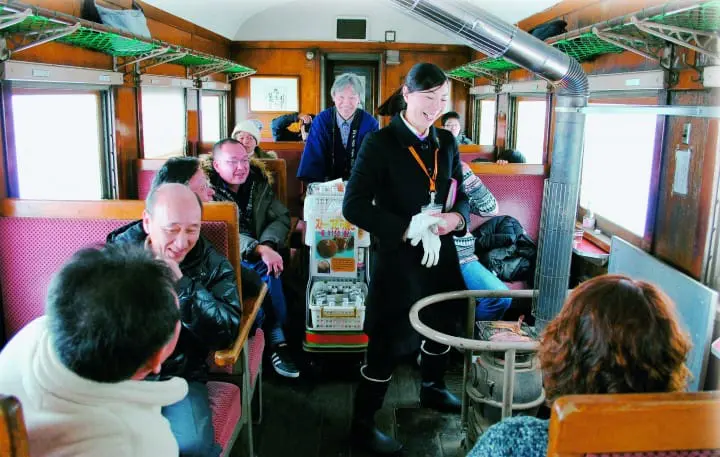
Picture courtesy of Tsugaru Railways
Some passengers even fry cuttlefish at the stoves. The aroma of this local treat filling the car, as well as the friendly attendants who speak in the Tsugaru dialect, are just some of the elements that bring joy to the passengers riding this train.
Outside, the surroundings are covered in pure white snow. But inside the train cars, it's cozy and warm, both for the body and for the soul.
To check the timetable of the Stove Train for 2019, please refer to their official website (Japanese).
The Frozen Trees of Mt. Hakkoda

Picture courtesy of Aomori Prefecture and the Association for Aomori Tourism
Tohoku boasts not only a rich culture but also scenic nature. For example, the frozen trees of Hakkoda form only when the ideal conditions of strong wind, low temperatures, and humidity. This view can only be enjoyed here.
On Mt. Hakkoda in Aomori, you can take the ropeway from the foot of the mountain and reach the summit in about 10 minutes. The thousands of frozen trees that fill the surroundings form an incredible scenery.
The Best Ally for your Tohoku Trip: JR EAST PASS (Tohoku)
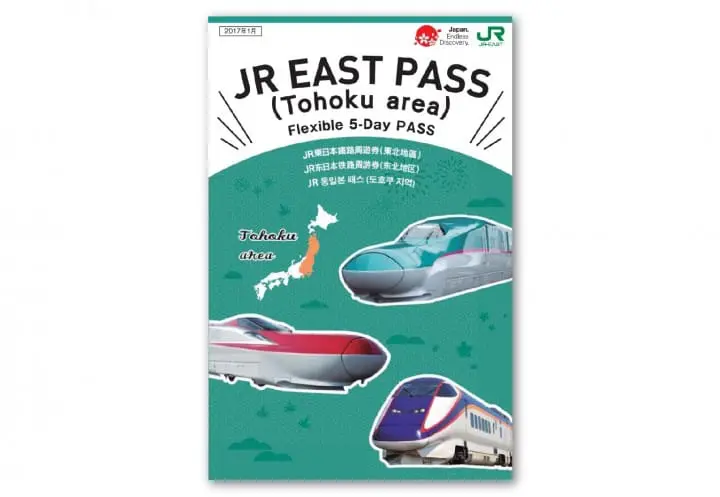
Picture courtesy of JR EAST
For a cultural trip to Aomori, Iwate, and Miyagi, we recommend using the very convenient JR EAST PASS (Tohoku). This ticket allows you unlimited rides on all the Shinkansen, limited express trains, rapid trains, regular trains, and even the buses operated by JR in the designated area - for a very convenient price for five days in a row.
For information on how to purchase this ticket and other details, please refer to the JR EAST PASS (Tohoku) website.
* The JR EAST PASS is a service for international travelers and cannot be used by Japanese individuals or foreign residents.
Tohoku's History, Legends, And Literature - A Recommended Itinerary
First Day: Take the Stove Train in Tsugaru Aomori and visit Kanagi, Osamu Dazai's hometown. Stay for the night in Aomori City.
Second Day: The frozen trees of Mt. Hakkoda, sightseeing in Aomori City, stay for the night in Hanamaki Onsen, Iwate.
Third Day: Visit Tono in Iwate. Stay in Sendai for the night.
Fourth Day: Tour Sendai with the Sendai Osanpogo tour bus. Visit Matsushima. Enjoy the SENDAI Pageant of Starlight. Stay in Sendai.
Fifth Day: Take a walk through Sendai and look for souvenirs. Return.
This five-day itinerary is recommended if you use the JR EAST PASS (Tohoku). Of course, you can adapt it to your needs and change the order of your destinations.
Tohoku is very cold in winter. Please make sure you are dressed properly in coldproof and windproof clothes during your cultural explorations in Tohoku.
* The JR EAST PASS (Tohoku) cannot be used on the Tsugaru Railways.
Read also
Written by Chia
Sponsored by JR EAST
東京に出てきて8年目です。






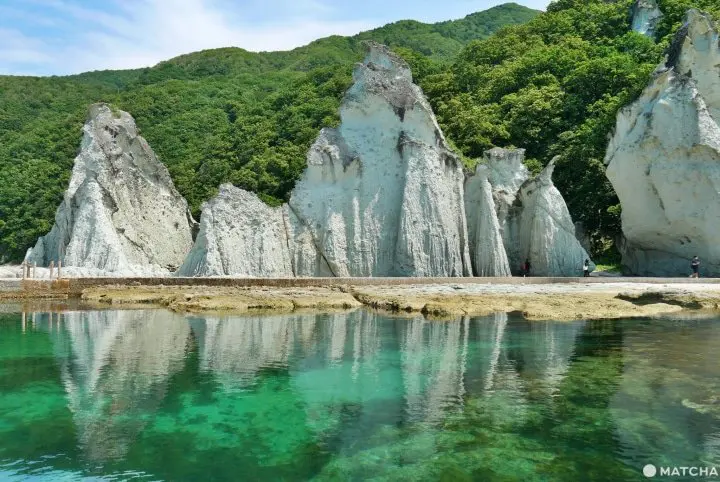







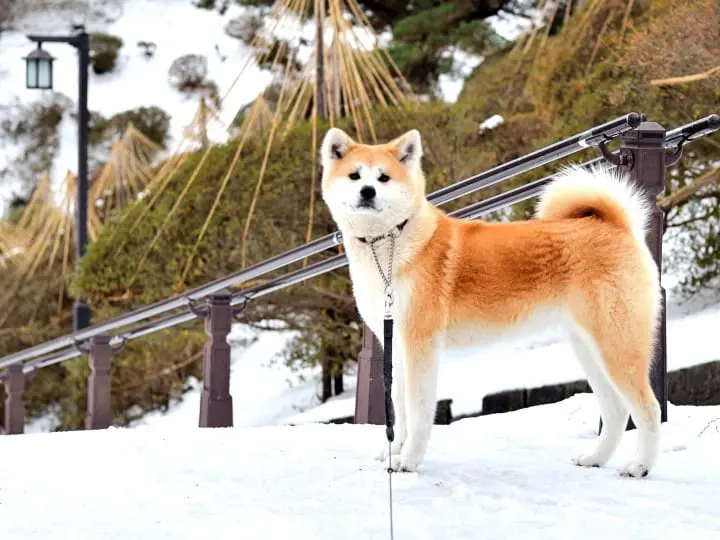


















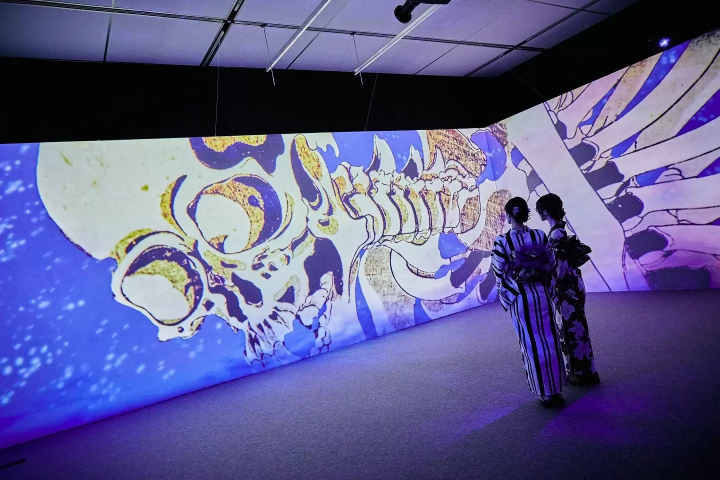
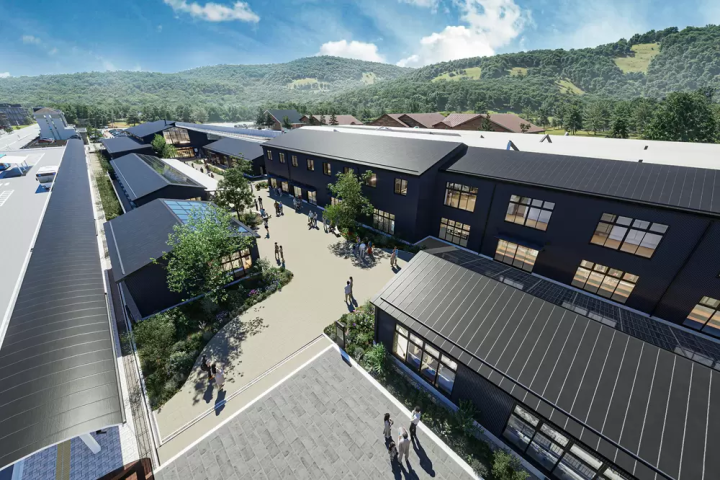
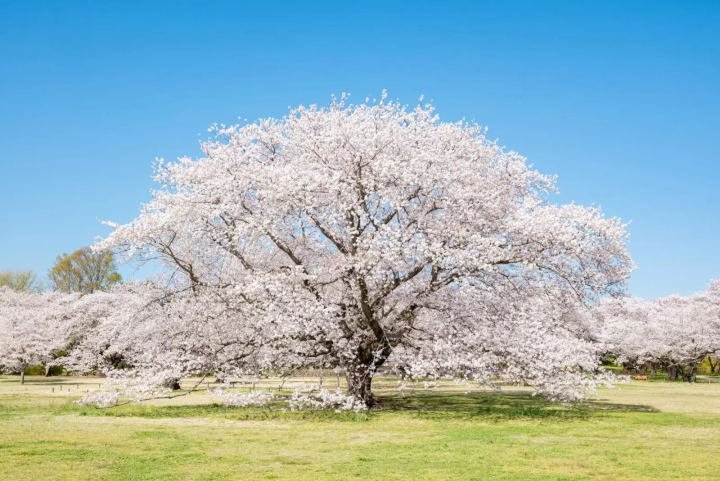
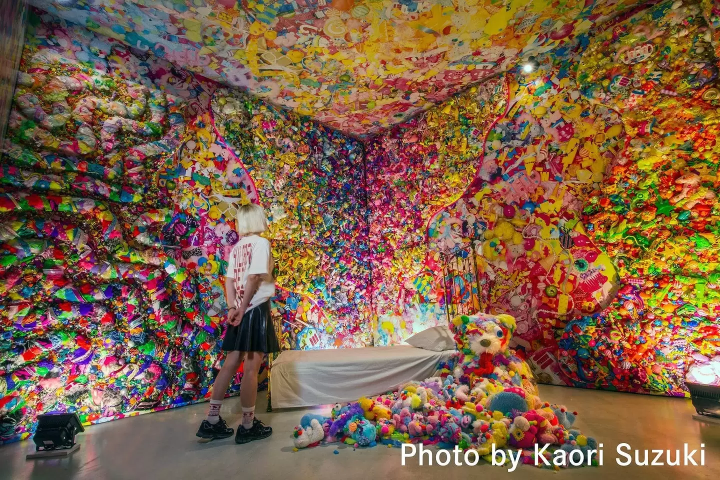
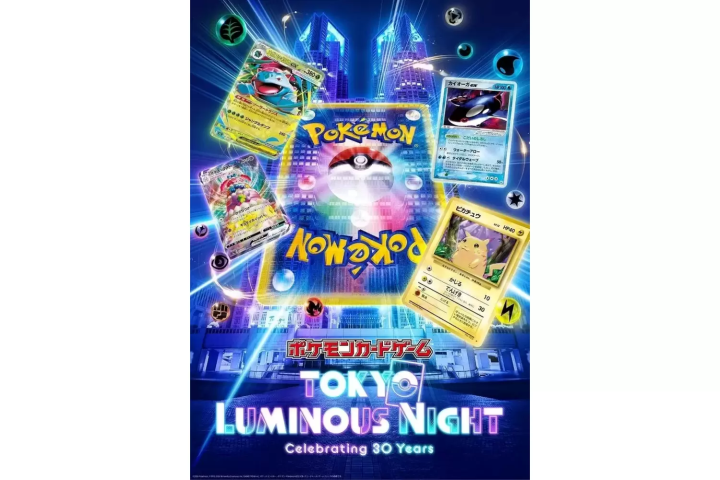




![[CAMPERLAB] Launch of next-generation sneaker "Tornado"](https://resources.matcha-jp.com/resize/720x2000/2026/03/05-260472.webp)
![[Latest Edition] 10 Recommended Lunches to Try in Yabu City , Hyogo Prefecture !](https://resources.matcha-jp.com/resize/720x2000/2026/03/05-260461.webp)
![[From March 11th] A collection of delicious Tohoku foods at Osaka 's Abeno Harukas Kintetsu Main Store!](https://resources.matcha-jp.com/resize/720x2000/2026/03/05-260451.webp)
![[First come, first served] Tour the hotel and get luxurious rewards! Stamp rally exclusive to visitors to Japan!](https://resources.matcha-jp.com/resize/720x2000/2026/02/18-259040.webp)
![[2026] Top 5 Cherry Blossom Spots in Naruto City , Tokushima Prefecture ! Light-ups and Access](https://resources.matcha-jp.com/resize/720x2000/2025/03/04-226780.webp)